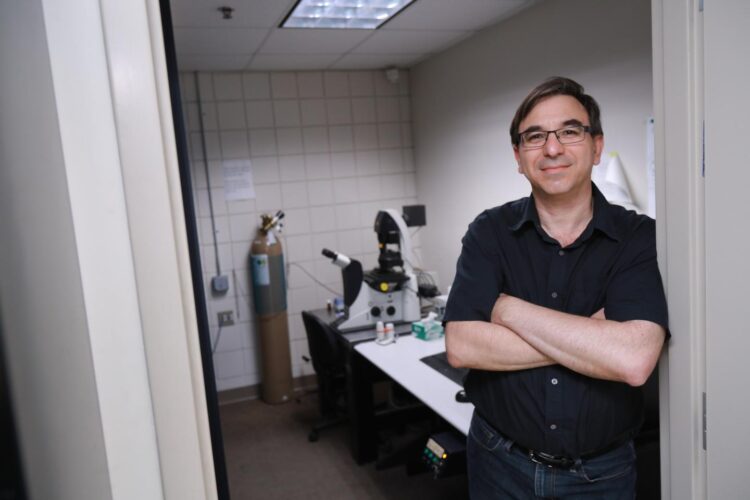The three-year grant targets agricultural productivity, but also can advance ongoing human fertility research
Every time a dairy cow is bred and fails to become pregnant, a farmer loses a month of profits on the cow’s milk. If it grows to two months, that’s a 20% loss in profit.
“Cows and bulls can have suboptimal fertility, just like humans,” said Dr. Tomer Avidor-Reiss, professor of biological sciences at The University of Toledo. “In the U.S. today, the average dairy cow takes three tries to become pregnant, being bred once each ovulation or estrous cycle.”
The UToledo scientist is now using his advancements made in human fertility research to help farmers reduce their costs for dairy production.
The U.S. Department of Agriculture awarded Avidor-Reiss $500,000 to develop tools and methods for selecting bulls with superior fertility by building upon his groundbreaking discovery in human sperm that changed the dogma in reproductive biology: an atypical centriole.
Several years ago, he found that a father donates not one but two centrioles through the sperm during fertilization, and the newly discovered sperm structure may contribute to infertility, miscarriages and birth defects.
“The beautiful thing about investigating and developing centriolar biomarkers for bull sperm is that it could help us with our human male reproductive research,” Avidor-Reiss said. “And the Council on Dairy Cattle Breeding, or CDCB, has an incredible database on bull fertility — it’s a robust, publicly available statistical report on fertility because the farmer reports whether each mating of a bull and cow resulted in a pregnancy. There is no report like this on any other species.”
The CDCB’s database for Sire Conception Rate, which originated under USDA’s guidance, was created to help dairy farmers “grade” the fertility of bull sperm.
The three-year project for the USDA continues the UToledo scientist’s collaboration with Select Sires Inc., an Ohio company that sells cryopreserved bull sperm for artificial insemination.
“The cattle genetics industries are constantly searching for ways to better serve dairy and beef producers around the world,” said Dr. Bo Harstine, director of research at Select Sires Inc. “Dr. Avidor-Reiss’s research examining the role that a sperm cell’s centrioles have in fertility could have major implications on our understanding of cattle breeding. As an Ohio-based biotechnology cooperative, Select Sires Inc. is proud to be partnering with The University of Toledo and Dr. Avidor-Reiss to bridge this research from the laboratory to real-world applications.”
Avidor-Reiss’s laboratory developed a quantitative method to determine sperm centriole quality, and preliminary results show that sub-fertile bulls have lower-quality centrioles.
“The University of Toledo’s efforts to attract federally supported research are far-reaching and have an economic impact on our region,” Congresswoman Marcy Kaptur said. “With USDA support, Dr. Tomer Avidor-Reiss will bolster knowledge about animal fertility and, in turn, the economic outlook for the dairy and cattle industry in northern Ohio.”
###
Media Contact
Christine Billau
[email protected]





